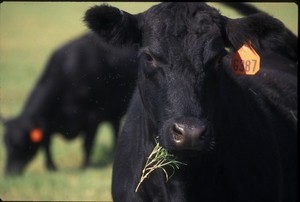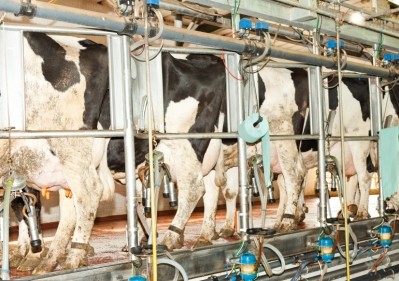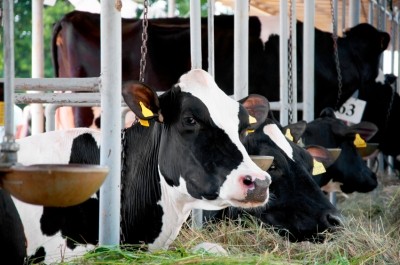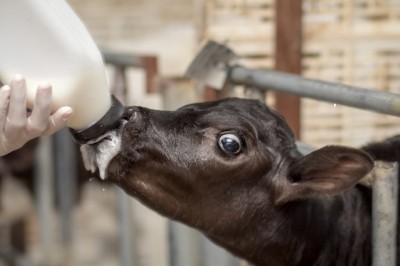Special Edition: R&D Trends In Vitamins, Minerals, Amino Acids And Yeast Cultures
KSU team seeks to uncover yeast and immune system link in postpartum cows
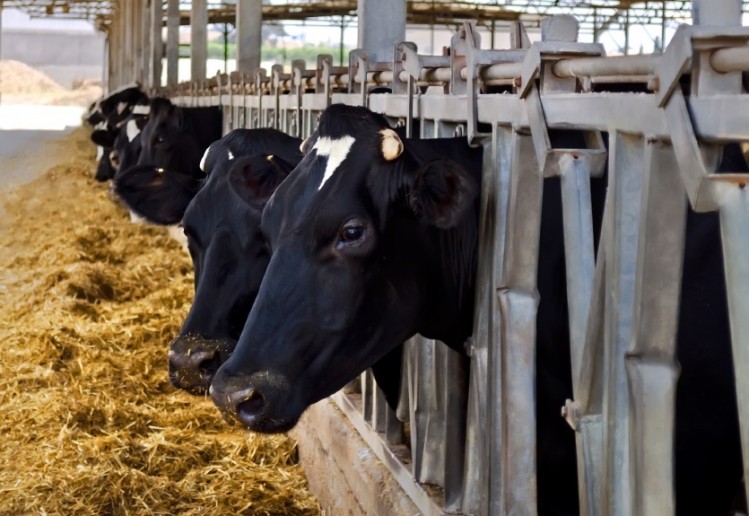
“We’ve heard plenty of anecdotal evidence that suggests that feeding various yeast products can improve milk production after birth,” said Barry Bradford, associate professor of dairy nutrition and dairy metabolism group member at Kansas State University. “But we’ve never really heard a strong mechanism proposed that’s backed up by evidence, so we designed the study to explore five or six different methods.”
The goal of the group’s work with the supplement that contained yeast culture plus “enzymatically hydrolyzed” yeast (YC-EHY) was to determine if it “alters (1) immunity, assessed as milk somatic cell linear score (SCLS), colostrum IgG concentrations, hematology and leukocyte differential, whole-blood bactericide of E. coli, IgG antibody production after vaccination, and IgA secretion from the gut mucosa; and (2) uterine inflammation, as determined by neutrophil populations and transcript abundance of inflammatory genes in uterine tissues,” researchers said. The supplement is known commercially as Celmanax.
The clearest reaction the group saw from their work was interplay between yeast and the immune system in the gut, Bradford told FeedNavigator. Even if the yeast isn’t absorbed, its presence can cause an increase of “pathogen binding antibodies” to be released into the intestinal tract, which was one reaction the group saw.
In the study, researchers found that “supplementation with YC-EHY enhanced measures of humoral and mucosal immunity and modulated uterine inflammatory signals and mammary gland health in transition dairy cows.”
Ongoing yeast questions
Yeast products developed from Saccharomyces cerevisiae have been used to boost feed intake and milk production in transition cows and recent findings imply that the products may cause an immune response, said researchers. Previous studies with neonatal calves produced an acute phase response, generation of antibodies and boosted health scores after live vaccine challenge and one with swine found that supplemental yeast limited expression of inflammatory genes.
“Such responses could be attributed to improved energy status via effects on digestive function, or to activation of the immune system through sensing of yeast components in the gut and subsequent cross talk between immune cells,” they said.
However, less is known about the interplay between yeast supplements and mucosal immunity, they said.
‘Battery of measures’ needed for test
In the experiment, 40 Holstein cows were given one of four diets from 21 days expected parturition to 42 days postpartum, researchers said. The diets included: a control diet, and the control diet with yeast supplement top-dress at 30g/d, 60g/d or 90g/d.
Feed eaten, behavior and milk produced were documented, researchers said. The milk was examined for somatic cells and colostrum samples were taken.
Additionally, blood samples were collected on days -21, -7, 1, 4, 7, 21 and 35 and fecal samples were taken on days 7 and 21, researchers said. Cows were injected with obalbumin on days -21, -7 and 14 to test humoral reaction, researchers said.
“The immune system is complex, however, and no single measure is likely to fully reflect immune status in vivo,” researchers said. “We therefore approached this question with a battery of measures to gauge immunity-related responses in the uterus, mammary gland, and circulation of cows during the transition to lactation.”
It also can be a challenge for dairy cows to return to estrus after transition, they said, which was why they recorded neutrophil numbers and the presence of inflammatory mediators post-calving.
Findings
“The thing I thought we might see was a benefit on feed intake, but in this case we didn’t really see a clear response in that direction,” said Bradford. “We saw what seemed to be a clear shift in how animals ate though it didn’t change how much they ate.” Animals receiving the yeast supplement ate smaller amounts more often than other animals, he added.
“I was little surprised that most of what we saw was on the immune side,” he said. “I thought we’d see more on the intake side.”
The supplement increased platelet count and raising the dose linearly boosted plasma anti-ovalbumin IgG levels following the three challenges, possibly indicating that the doses improved humoral immunity, researchers said. The supplement also quadratically elevated fecal IgA amounts in early lactation, which suggests that 30g/d and 60g/d doses improved mucosal immunity.
“No treatment effects were detected for erythrocyte count, hemoglobin, or leukocyte count,” researchers said. “Hematocrit was linearly decreased by treatment.”
Additionally, concentrations of colostrum IgG were not affected by treatment, researchers said. Post-calving day effects were seen for mRNA of IL-6, IL-8, neutrophil myeloperoxidase (MPO) and neutrophil elastase (ELANE), with greater amounts collected on day 7 than d 42, researchers said. And, a quadratic effect was found for IL-6, showing that 30g/d and 60g/d amounts of the yeast treatment decreased the uterine IL-6mRNA. The mRNA of MPO and ELANE increased linearly with the yeast treatment.
The results demonstrate some treatment reaction in the amount of inflammation-related transcripts, researchers said. “Although YC-EHY exerted inconsistent effects on different uterine inflammatory signals and the implications are unclear, our findings nevertheless indicate that yeast components can modulate inflammation and perhaps reproductive function,” they added.
Continuing the research
At this point there are different directions that future research may take, said Bradford. One process would be to look at the effect of feeding yeast to animals lacking certain receptors, but that trial could be difficult in livestock.
The other test the group is interested in pursuing would be a large scale study to see if fewer cows being fed yeast get sick in a real-world situation, he said. In some past experiments yeast supplements have been used in challenge trials and the yeast appears to improve cow resiliency.
The research was funded by Vi-COR Inc.
Source: Journal of Dairy Science
Title: Yeast product supplementation modulated humoral and mucosal immunity and uterine inflammatory signals in transition dairy cows
Authors: K. Yuan, L. Mendonça, L. Hulbert, L. Mamedova, M. Muckey, Y. Shen, C. Elrod, B. Bradford
